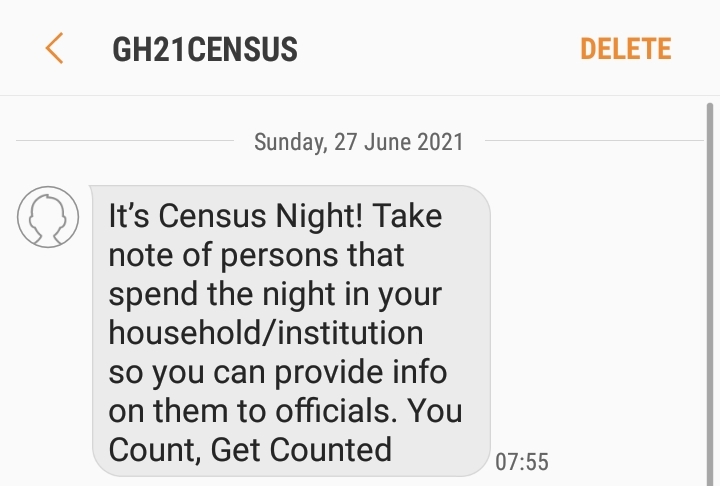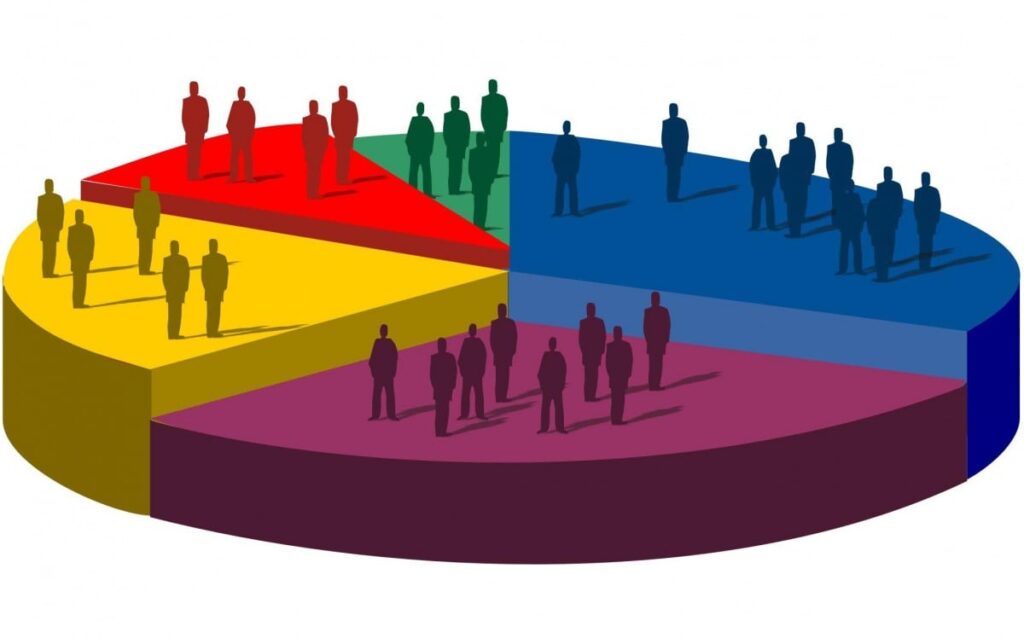Ghana is currently conducting a Population and Housing Census (PHC)– the sixth post-independence census in the West African nation, and has slated the night of June 27 as “census night”.
Already some Ghanaians are receiving text messages on their phones sensitizing them about what the census night means. One such text message sighted by GhanaFact said: “It’s Census nights! Take note of persons that spend the night in your household/institution so you can provide info on them to officials. You count, get counted.”

“The census midnight is the defining moment that will mark the actual reference point for who should be counted and where they should be counted basically,” Board Chairperson of the GSS, Dr Grace Bediako told GhanaFact.
Defining moment
“Except for those who go for the night shift and by their routine they come back in the morning, all those who do not sleep in their homes on census night will be counted elsewhere, that is where they actually slept on census night.” Dr Grace Bediako said.
The “census night” will help defines two key things: borderline issues and avoid people getting counted twice.
- It defines who is to be covered within the boundaries of Ghana. If you are found within the boundaries of Ghana on the census midnight (June 27) then you should be counted either as a foreigner or a national.
- Where you should be counted and that is where you slept on census night.
Newborns and the dead
“If a baby is born before the census night then the baby can be counted. But if the baby is born after the census night let’s say 28th then that baby should not be added.” Dr Grace Bediako stated.
“If someone passes before census night, that person should not be counted but if that person passes away on 28 June, it means the person was here on census night and so will be counted,” she explained.
Here are the questions to be asked by the enumerators.
- Travel history of household members who have migrated abroad
- Socio-demographic characteristics (age, sex, education, ethnicity, religion etc.)
- Literacy and education
- Economic activity (employment status, job description, occupation, industry)
- Difficulties in performing daily living activities (seeing, hearing, walking etc.)
- Ownership and usage of ICT devices
- Children born to women 12 years or over
- Deaths of household members within the past 12 months
- Housing conditions (construction materials of structure; water supply; asset ownership)
- Sanitation (disposal of solid and liquid waste)
- Source of water, lighting and cooking fuel
“All responses provided to enumerators during the Census are strictly confidential. Disclosure of any information obtained in the Census without lawful authority is an offence liable to a fine, a term of imprisonment or both per the Statistical Service Act, 2019 (Act 1003), ” Ghana Statistical Service has said.
The Ghana Statistical Service (GSS), which is the lead agency implementing the census in collaboration with other public sector agencies has said it is aimed at generating statistics for policy and planning purposes.
Here is a FACTSHEET on what you need to know about the 2021 Population and Housing Census.
By: Gifty Tracy Aminu



